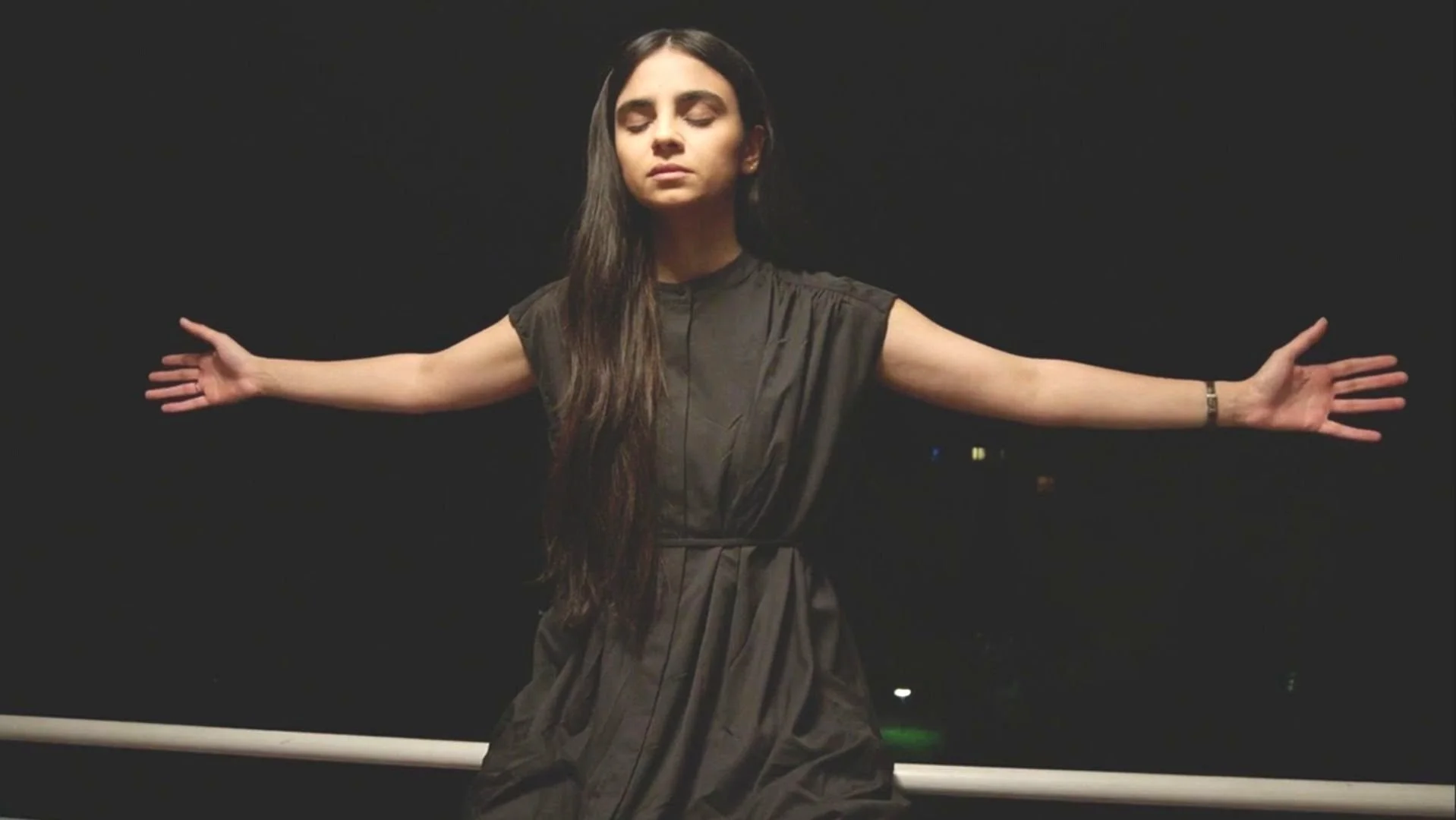Elaha
Exceptional new talents emerge in Milena Aboyan’s female-centric drama featuring Kurds in Germany.
Whatever its eventual weaknesses, the arrival of this German film on our screens is cause for rejoicing. That's because Elaha offers not just one but two exciting discoveries. It is the first feature of Milena Aboyan a Yazidi Kurd settled in Germany who draws on the world that she knows to tell the story of 22-year-old Elaha who is established in Germany with her Kurdish family. So assured are her directorial skills that for much of its length I thought that this film would rank among the very best of the year. No less impressively the role of Elaha provides the first lead for the young actress Bayan Layla whose remarkable performance marks her out as someone of quite exceptional skill. These merits are so outstanding that I would recommend all serious film enthusiasts with an interest in international cinema to view the film notwithstanding that the quality of the writing falters badly in the late stages.
It is entirely apt that Aboyan's film begins with a memorable shot of Layla looking directly into the camera just ahead of the title appearing. Elaha is still studying but already engaged to a young man named Nasim (Armin Wahedi). Her situation is one which should mark this as a very happy time of her life but in reality there is a major concern that overshadows everything else. It is highly likely that Nasim has had other sexual relationships previously but Elaha recognises that he would be aghast were he to discover that his bride was not a virgin. Elaha’s strict and controlling mother (Derya Durmaz) is certain that her daughter is indeed a virgin, but in truth she has secretly had a love affair that ended badly. An operation to reconstruct her hymen would solve the problem and Elaha looks into this possibility only to discover that the cost for it to be done would be more than she could afford. This leads her to consider alternative ways of preventing the truth from emerging on her wedding night but the situation becomes even more critical when her future mother-in-law makes it known that she would like Elaha’s virginity to be checked by a doctor ahead of the wedding.
While the central situation in Elaha revolves around this problem, the film also gives a vivid portrait of Elaha’s life in general – be it at home with her parents and younger siblings, in the classroom where a sympathetic teacher - Stella Zahaye played by Hadnet Terfai who comes from Eritrea - encourages her, in the part-time work that she does when employed by Nasim’s sister Nihal (Homa Faghiri) or out and about with her two close friends, Berivan (Cansu Leyan) and Dilan (Beritan Balci). In all of these settings the film traces relationships that we can believe in and does so in a manner that is admirably naturalistic but also remarkably succinct and fast moving. By putting the emphasis so firmly on Kurds living in Germany Aboyan’s film gains from her being an insider familiar with that world. That is a central and compelling feature of the film but it is also the case that we are invited to see Elaha’s situation in a wider context. The attitude to sex before marriage reflected in what is acceptable in males but not in females is seen as still widely prevalent in a world in which many societies are at heart still patriarchal.
In the case of Elaha herself the writing is adroit and perceptive but aided also by what Bayan Layla brings to the role in expressing her intelligence and her warmth (the latter quality so well rendered in the scenes that she shares with Réber Ibrahim as the youngest child of the family). The screenplay again does well in conveying the various sides of the mother’s character, over-assertive yet loving too for the most part. But elsewhere it is the writing that is at fault. Even when the film is functioning well one might question whether or not the sympathy and concern shown by Elaha’s teacher is just a shade contrived and more time could usefully have been given to the father elaborating on the way in which his ability to support his family is weakened by legal restrictions on the work which he is qualified to take up in Germany.
But the big doubts all come in the last section of the film. Ironically this is after some strong scenes, admirably judged so as not to fall into melodrama, which might well have quickly led to a conclusion. Instead, there is time to ponder how dramatic events could possibly have occurred without Nasim being any the wiser and to question the role played by Yusuf (Slavko Popadić). A loner who is deeply depressed by the state of the world, he has nevertheless established a platonic friendship with Elaha and, while he is a somewhat unusual figure, this is convincing enough. What feels thoroughly unreal is the unexpected way in which his behaviour changes and which is then central to the final stages of the film’s narrative. If you find all this convincing, you might well regard Elaha as a masterpiece. If not, you will share my disappointment in it, but you may well believe as I do that there is greatness in this film and that it contains exceptional work from both Bayan Layla and Milena Aboyan.
MANSEL STIMPSON
Cast: Bayan Layla, Hadnet Tesfai, Derya Durmaz, Armin Wahedi, Slavko Popadić, Cansu Leyan, Beritan Balci, Nazmi Kirik, Homa Faghiri, Réber Ibrahim, Derya Dilber, Onur Poyraz, Ferman Alkasari.
Dir Milena Aboyan, Pro Matthias Greving and Igor Dovgal, Screenplay Milena Aboyan and Constantin Hatz, Ph Christopher Behrmann, Pro Des Christina Mammes and Nora Balmer, Ed Elias Ben Engelhardt, Music Kilian Oser, Costumes Lara Scherpinski and Paulina Immig.
Kinescope Film/Essence Film-616.
110 mins. Germany. 2023. UK Rel: 26 April 2024. Cert. 15.


